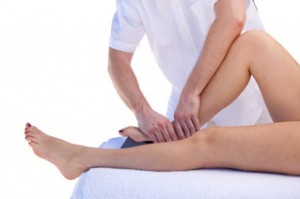London Stroke treatment and Physiotherapy Rehabilitation after a Stroke
What is a stroke?
A stroke occurs when the blood supply to part of the brain is cut off due to a clot or haemorrhage. A person may also experience a mini-stroke or transient ischaemic attack (TIA), where the interruption to the blood supply is temporary and they go away after a few minutes or a few hours.
Stroke is the third most common neurologic pathology in the UK and approximately 150,000 people have a stroke every year.
If you are an Axa or Bupa patient, you cannot book online. Please call our office with your authorisation number.
If you cannot find an appointment which suits you or would like a home visit, call us or send us a message: we will do our best to find you a slot.
Rehabilitation after a Stroke, Neurological Physiotherapy in London
Neuro Physiotherapy is a very important part of rehabilitation after a stroke and must be started as soon as possible to give to the patient who had a stroke the best chances of recovery. Stroke physiotherapy will help patients regain muscle strength and giving back as much movement as possible to the affected limbs. Our Stroke Physiotherapist will also work on the spasticity by gently and slowly stretching the affected muscles. He will also do passive and active mobilisation to keep the joint mobile. Once the patient who had a stroke starts to regain strength and mobility, our stroke physio will increase the intensity of the exercises until the patients can be more independent in his everyday life. Re-learn to walk, re-training his balance and working on the muscles that allow a safe walk with or without frame will also be an important part of the physio rehabilitation post stroke.
Physiotherapist Specialised in Stroke Rehabilitation
Our neuro physios in London have years of experience working with patients that have suffered a stroke, in order to help them regain as much mobility and independence as possible. Our specialised neuro physiotherapist can offer a full stroke assessment of the patient’s mobility and create a tailored stroke rehabilitation programme. They can also advise the patient’s family or carers on how to deal with the patient’s mobility restrictions and how to help them on a day to day basis.
Stroke Physiotherapy Rehabilitation at Home in London, Home Visit with our Physiotherapist Stroke specialist
We offer physiotherapy at home in London, so the patient can be in familiar environment and feel comfortable, without having to worry about traveling to the practice. Our Stroke physiotherapist can visit you anywhere in London. For more information and to book an appointment, please contact us.
Stroke Physio Rehabilitation in London at Our Practices in Monument Moorgate EC3, Belgravia SW1 or Clapham SW4
If you can and prefer to come to our physio practice for your stroke rehabilitation, our stroke specialist can treat you at:
- Our clinic in Monument near Bank, Moorgate and London Bridge
- Our clinic in Belgravia Westminster near Victoria, Knightsbridge and Sloane Square
- Our clinics in Clapham near Battersea and Balham
Our clinics are located within walking distance to the main Central London stations and are easy to reach from anywhere in London. If you cannot find a suitable appointment in your clinic of preference, you can choose any of the others as our clinics are located just 10-15 minutes` travel from each other.
Stroke physiotherapist covered by Health Insurances in London and recognised by AXA, BUPA and Cigna
Our physiotherapy and osteopathy treatments are covered by most health insurances and are Bupa registered & recognised (BUPA Global and BUPA UK), Axa registered & recognised (AXA International, AXA ppp), Cigna registered & recognised and WPA registered & recognised
For appointment with our physiotherapist stroke specialist in London call : 0207 125 0262 – 07824 553765
More Information about Stroke (London)
People over 65 years of age are most at risk of having a stroke, but anyone can have a stroke. The symptoms and their severity vary from person to person. For some people they can be quite mild, or in more serious cases they might cause permanent damage.
The main symptoms of a stroke are:
- Numbness, weakness or paralysis on one side of the body or the face
- Slurred speech or difficulty finding words or understanding speech
- Blurred vision or loss of sight
- Confusion or unsteadiness
- Severe headache
If you suspect that you or someone else is having a stroke, phone 999 immediately and ask for an ambulance.
After a stroke, patients might experience of paralysis (hemiplegia) in the muscles of one side of the body. This will be the opposite side of where the stroke happened. It may be difficult to control the limbs, or they might react to a different way than what the patient intended when they try to move them. Some people also feel pins and needles or hot and cold sensations. Muscles may also become stiff and may develop involuntary spams. Joints on the affected side may be more prone to injury.
A neuro physiotherapist will be able to help you regain your maximal autonomy after a stroke.
If you are an Axa or Bupa patient, you cannot book online. Please call our office with your authorisation number.
If you cannot find an appointment which suits you or would like a home visit, call us or send us a message: we will do our best to find you a slot.


